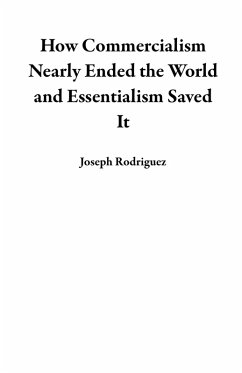From the birth bond that ties people to a lifetime of debt, to the nisi prius courts where contracts outweigh justice, and the generational conditioning that programs people to consume, this book uncovers the hidden systems that have ruled lives for generations. Each chapter reveals the cost of unchecked commercialismon our environment, health, relationships, and personal freedomswhile offering a hopeful vision of how essentialism can restore balance to our lives and society.
The stories also delve into the role of artificial intelligence, exploring how AI is being used to manipulate desires and behavior, turning people into products of a data-driven world. But even here, there is hope. As individuals awaken to the programming that shapes their lives, they begin to reclaim control, using technology to support mindfulness and creativity rather than fuel mindless consumption.
"How Commercialism Nearly Ended the World and Essentialism Saved It" challenges readers to look beyond the façade of progress sold to them by corporations, governments, and technology. It invites us to reflect on the choices we make and the systems we support, while providing a roadmap for living in alignment with our deepest values. Whether it's choosing trees over towers, turning off the screens in our schools, or using AI for enlightenment rather than enslavement, this book shows that the power to change the world lies in returning to what is essential.
Perfect for readers interested in philosophy, minimalism, sustainability, and the deeper implications of modern commercial practices, this book is a call to action for a more intentional and free future.
Dieser Download kann aus rechtlichen Gründen nur mit Rechnungsadresse in A, B, CY, CZ, D, DK, EW, E, FIN, F, GR, H, IRL, I, LT, L, LR, M, NL, PL, P, R, S, SLO, SK ausgeliefert werden.









